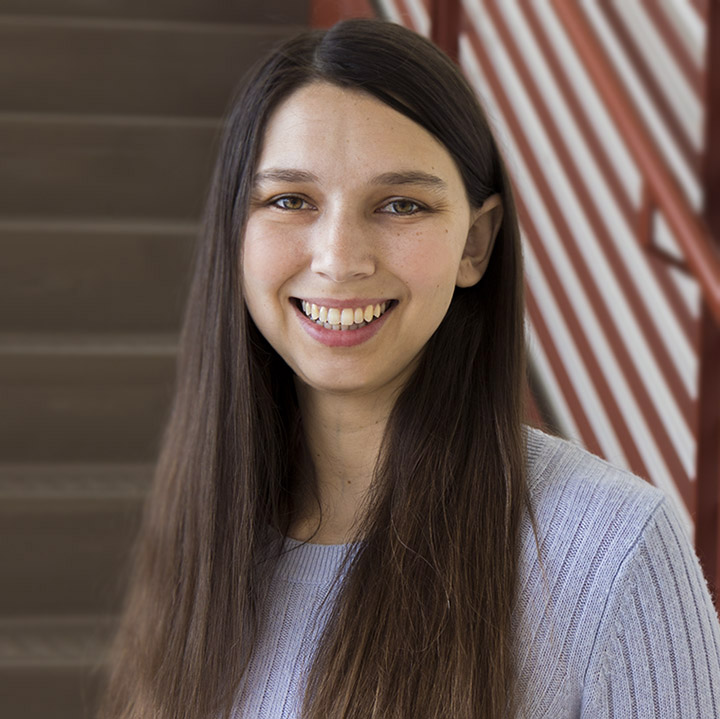
LA JOLLA, CA—Sara McArdle, Ph.D., a microscopy specialist at La Jolla Institute for Immunology (LJI), has been selected as one of seventeen “Imaging Scientists” by the Chan Zuckerberg Initiative (CZI)czi . The award, which totals $680,000 over five years, supports the work of McArdle, who helps scientists take advantage of the latest imaging technology by bridging the gap between engineering, software development, data processing and biology.
“Today’s microscopes are marvels of engineering but it still takes human ingenuity to bring details never seen before into view,” said Mitchell Kronenberg, Ph.D., president and chief scientific officer. “Sara’s imagination and resourcefulness helps the Institute stay at the cutting edge of imaging technologies and greatly advances our understanding of how the immune system works.”
CZI initiated the Imaging Scientists program to break down the walls between disciplines and empower biologists to reap the most benefit from new technical advances in the field of imaging. It funds imaging specialists who can move creatively between different fields, from physics and medicine, to engineering and biology.
Trained as a biomedical engineer, it is this intersection between biomedical research and technology where McArdle feels most at home. “Imaging is fundamental to immunology and all other biological disciplines,” said McArdle. “I am thrilled that the Chan Zuckerberg Initiative recognizes the importance of collaboration between biologists and technology experts to push the boundaries of the visible world and I am grateful for the philanthropy’s support.”
As part of her graduate studies, McArdle explored the role of immune cells in atherosclerosis, the buildup of fatty substances and cholesterol deposits on the inside of arteries. Specifically, she wanted to use intravital microscopy to track immune cells inside the carotid artery in living mice, but the ebb and flow of blood pulsing through the vessel would inevitably thwart any efforts to record clear videos.
To compensate for the heartbeat, McArdle designed and custom-built a clever system that links the animal’s pulse to image acquisition on a 2-photon microscope. This allows the microscope to skip the movement due to the heart’s beat and acquire a series of stable images. After some computational fine-tuning of the collected data, Dr. McArdle was able to watch as a specific type of immune cell orchestrates the inflammatory assault on the artery wall.
Since joining the LJI microscopy core, McArdle brings her love of tinkering and building and her problem-solving skills to wide-ranging collaborations with scientists at LJI. She stays up-to-date on the latest technology, teaches, advises, writes software, experiments with 3D-printers and spearheads the microscopy core’s machine learning efforts to help LJI researchers expand their gaze into uncharted depths of living tissues to better understand how the immune system works.




